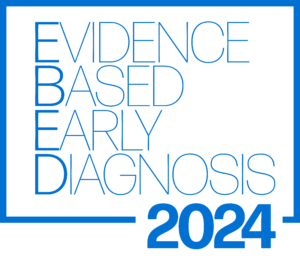Mackenzie Institute of Early Diagnosis > Publications
EBED 2024 – Programme
Wednesday 29 May
| Timeline | Topic |
|---|---|
| 1200-1300 | Arrival and lunch |
| 1300-1315 | Welcome and introduction from Prof. Peter Donnelly |
| 1315-1415 | Setting the Scene: what could success look like for the introduction of new diagnostic tests? Patient Representative - Anne Fearfull Industry Representative - Andreas Halner, Oxford Cancer Analytics (OXcan) Regulator Representative - Joseph Burt, Medicines and Healthcare products Regulatory Agency (MHRA) British Medical Journal – Helen Macdonald |
| 1415-1530 | Theoretical Considerations Dr. Margaret McCartney, Senior Lecturer, University of St Andrews, freelance writer and broadcaster Prof. John Brodersen, University of Copenhagen, Department of Public Health 30 mins moderated panel discussion of 1st 2 sessions |
| 1530-1600 | BREAK |
| 1600-1715 | Abstract Session Elevator Pitches |
| 1715-1830 | Clinical Perspective Prof. Carl Heneghan, Centre for Evidence-Based medicine, University of Oxford Prof. Susan Moug, University of Glasgow, School of Medicine, Dentistry and Nursing Prof Alex Richter, Birmingham JD Discussion |
| 1830 | Drinks Reception in the Gateway, followed by walking tour of St Andrews led by University Students |
Thursday 30 May
| Timeline | Topic |
|---|---|
| 0715- | Beach run/swim with Dr. Margaret McCartney & Prof. Frank Sullivan – Meet at Gateway Building |
| 0800-0900 | Networking coffee time |
| 0900-1030 | Policy and Regulations Prof. Jon Deeks, University of Birmingham, Institute of Applied Health Research Dr. Stuart Hogarth, Cambridge MMcC Discussion |
| 1030-1100 | BREAK |
| 1100-1200 | Economic Issues Rebecca Fitzgerald Pd Prof. Bethany Shinkins, Warwick Medical School Health Sciences Discussion |
| 1200-1300 | Lunch and networking |
| 1300-1430 | Abstract Session Theoretical considerations |
| 1430-1500 | BREAK |
| 1500-1600 | Abstract Session Clinical & patient perspective |
| 1600-1730 | Meet the expert Sessions FS Facilitators: 1. Associate Prof. Brian Nicholson, Nuffield Department of Primary Care Health Symplify Sciences, University of Oxford a. How should we evaluate novel cancer 2. Prof. Clare Turnbull, The Institute of Cancer Research Polygenic testing a. What can polygenic testing contribute to ED 3. Bob Steele NSC a. How the NSC decides whether a screening programme should be implemented 4. Chris Peters Biomarkers a. Why so few biomarkers make it into clinical practice. Feedback |
| 1730-1800 | Tour of Medicine Building |
| 1900 | Conference dinner |
Friday 31 May
| Timeline | Topic |
|---|---|
| 0800-0900 | Networking coffee time |
| 0900-1000 | Abstract Session Policy & Regulation |
| 1000-1030 | BREAK |
| 1030-1200 | Small Group Session Feedback: identifying gaps and how to take forward Questions not answered earlier on the discussions Theory Clinical Policy economic Feedback from Meet the experts and Small group gap discussions |
| 1200-1230 | Summary and Future Planning |
| 1230-1400 | Lunch, Safe journey home |


